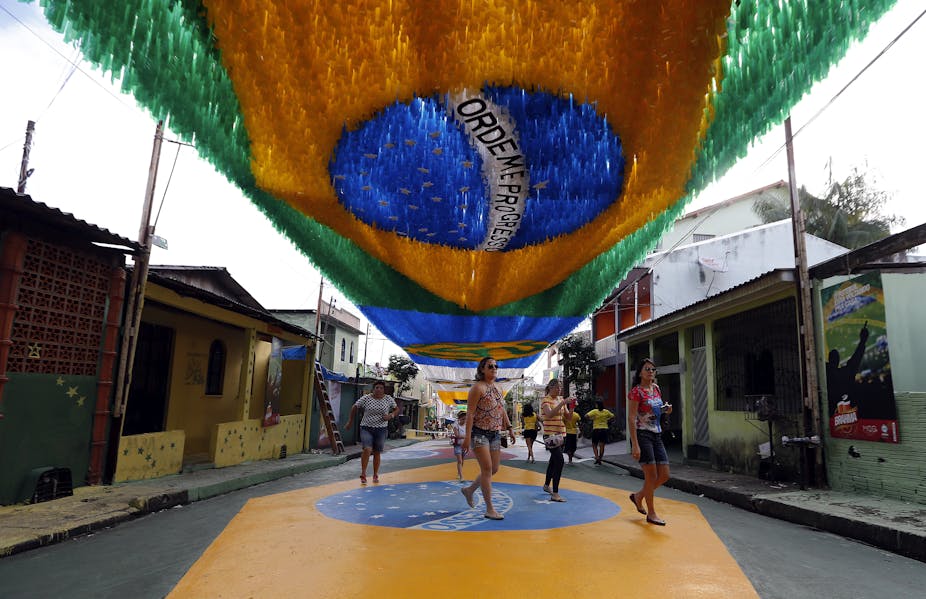Brazilians are a proud people. Among the nations of the so-called Global South, we feel distinguished and blessed in many ways. Just consider, for instance, the natural beauty of this country’s continental territory; the unprecedented diversity of its tropical ecosystems; the unique blending of African, European and Oriental influences in regional customs and local traditions; and joyous popular festivities like Carnival. We also boast an international reputation for our love of football and five World Cup titles to date.
The World Cup is about to kick off in Sao Paulo, and yet most native football fanatics will not be attending any of the official matches. Tickets are far too expensive and, by now, nearly impossible to get.
Despite this, my countrymen and women will cheer passionately for the seleção, our national team. They will, no doubt, also appreciate any other contestants who can dazzle the crowds with a game well played.
It’s clear that many of us feel ambivalent about this cup in our homeland. The main reasons for our scepticism involve the heavy toll on public funding and the ill-conceived demands made by FIFA. It seems unreasonable to expect that our leaders should set up logistics and invest hugely in infrastructure for staging an event whose rules do not necessarily coincide with our own.
Take selling alcoholic drinks in the sports arenas, for instance. Prohibition has been in effect for a number of years in football stadiums, and is part of a welcome tough stance against violence in sport. Showing total disregard for local culture and national legislation, FIFA demanded the ban to be lifted, just as it insisted on having the final say about which major brands do business in and around each of the venues. From the point of view of local suppliers, traders and sport fans alike, all this is truly outrageous.
Globalisation brings about contrasting, if not contradictory trends. On one hand, one is rarely at a loss in any major city nowadays with the spread of global brands and the multicultural characteristics of transnational corporations. On the other hand, local differences are too easily levelled-out in the rather pasteurised western-style-gone-mainstream in most corners of the world. “Exotic” products of questionable authenticity feed profitable “niche” markets worldwide.
Brazilians may be proud, but we are well aware that not everything is bright and sunny in a land where social inequalities abound. There is still a long way to go before every one of our more than 200m people rise to full-fledged citizenship.
The uprisings last year gathered millions in the streets throughout the country. They brought to light long-repressed dissatisfaction with skyrocketing costs of living, endemic corruption and a lack of public spending in critical priority areas. We realise it is important to boost tourism and attract foreign investments, but nothing should be above respecting a sovereign state and its people. Not even our most beloved sport.

